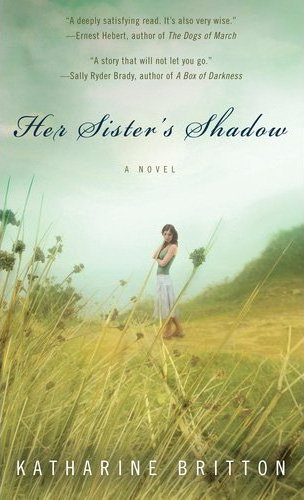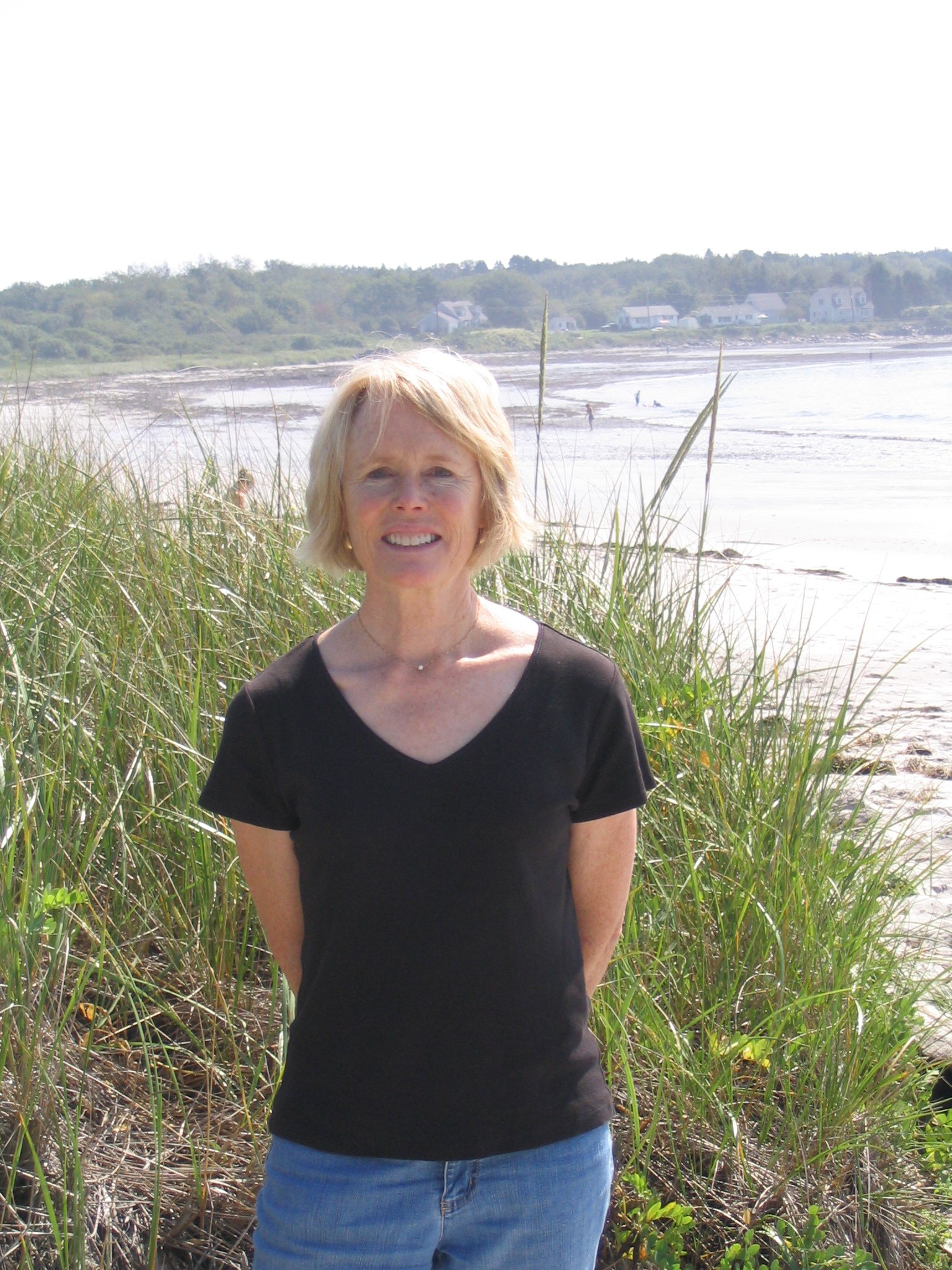 Synopsis:
Synopsis:
George and Blythe Niles were raising their four daughters — Bea, Charlotte, Lilli, and Dori — just outside the small town of White Head on the Massachusetts coast in a beautiful house where Blythe tended the lush gardens and painted vines running up the kitchen walls. Life was idyllic until George died in 1962, sending Blythe into a state of depression from which she would never recover.
Lilli and Dori, two years younger, were extremely close. They shared a room, friends, and activities together. After George’s death, caring for the youngest of the four often fell to Bea, nine years Lilli’s senior. As the oldest, Bea shouldered many responsibilities, stepping in when Blythe was incapable of doing so.
Randall spent summers with his aunt and uncle who lived next door to the Niles. As a fifteen-year-old, Lilli had a mad crush on him. She knew she loved him, and shared her feelings with both Dori and Charlotte. But she was not allowed to attend the dance at the yacht club with him, because George’s rule was that his daughters could not date until they were sixteen. It was Dori’s thirteenth birthday and they had enjoyed a special day of celebrations that were to culminate with Dori’s party the next day. But Dori wanted Lilli to attend the dance, so she helped Lilli dress and put her hair up, and they snuck down to the yacht club where Lilli did, in fact, enjoy a magical dance with Randall while Dori stood as the look-out. If only they had gone right home that night, everything would have turned out differently.
As the story opens, it is 2009, and Lilli has not been to White Head or seen Bea since she left there in 1969. Lilli, a successful artist and gallery owner, lives in London. When Bea calls to inform her that her husband, Randall, has died suddenly and asks her to come home for the memorial service, Lilli has mixed emotions, but agrees to a very brief visit. Her long-deferred visit will prove to be a life-changing experience.
Review:

The action alternates in subsequent chapters between 2009 and 1966 through 1969. Bea, the oldest of the four sisters, is orderly, efficient, practical, and authoritative. Their mother, Blythe, is artistic, sensitive, eccentric — and quite lost following the death of the girls’ father. Bea is forced to become more and more of a mother figure to Lilli and Dori, who are nine and eleven years younger. Bea is small in stature, but not opinions and, unbeknownst to Lilli at the time, determined to keep the home in the Niles family. She has no desire to leave it or White Head, while artistic Lilli dreams about traveling the world and living in places like Paris. Dori is the happy baby sister who brings sunshine and adventure to the family, especially Blythe.
At fifteen, Lilli experiences love for the first time with Randall, the handsome, charming, and caring young man four years her senior who spends every summer in White Head. She thinks that he shares her feelings, but observes interactions between Randall and Bea that make her suspicious about their relationship. Surely her own sister would not lure Randall away, especially given that Bea is five years older than Randall?
When tragedy strikes the Niles family more than once, Britton examines the reactions of the sisters, focusing primarily on Lilli, who feels responsible for the first loss and discovers the second which was undoubtedly inspired by the first. The story is primarily an exploration of Lilli’s life up to the point that she fled White Head in 1969, juxtaposed against her return forty years later. The house and gardens have fallen into disrepair and Bea, now a sixty-seven-year-old recent widow, is somewhat senile but, in many ways, the same stubborn, determined Bea. Lilli wants only to pay her respects and escape back to her life in London, but finds herself inescapably drawn back into life in Massachusetts as it becomes increasingly clear that Bea cannot continue to live alone. Charlotte is a physician living in California whose only daughter, Izzy, is apparently planning to marry soon and, according to Bea, has asked that the wedding take place in the garden, as did her parents’ wedding more than forty years earlier. But Bea has performed no maintenance on the home — everything is exactly as it was, down to the clothing that Lilli left there so long ago which still hangs in the closet of the room she shared with Dori. Lilli has to convince both Izzy and Bea that there is no way the house and garden can be renovated in time, but soon discovers that all is not as it seems — or in accordance with Bea’s representations.
Britton explores family secrets and long-held resentments founded upon assumptions that seldom prove to be accurate, primarily from Lilli’s vantage point. She has always felt that she lived in Bea’s shadow but after so many years away, her return home forces her to see her sister, the world in which she remained, and the life Bea has lived from a new and informed perspective. Lilli has come back to White Head determined to finally tell Bea the whole truth and right their relationship, but when she sees that Bea’s own agenda inspired her to ask Lilli to return, soul-bearing is not as easy as Lilli might have hoped. Bea seems as disingenuous and competitive as ever, but as Lilli learns what Bea’s life has truly been like, it is impossible for her to hold on to the old resentments and grudges.
The plot twists are predictable and contain no surprises, but that does not detract from the story’s emotionally satisfying course. Britton’s descriptions of White Head, nestled on the coast, are evocative and lush, making her settings a character integral to the story as she weaves a tale about choices, consequences, and never losing sight of the fact that the experiences of our family members can never be exactly like ours, yet are every bit as valid. It is refreshing to read a family saga in which the main protagonists are mature women with substantial histories who are still confronting and learning from all that they have experienced, and remain capable of changing their outlooks and forgiving each other in the name of family. Overall, Her Sister’s Shadow is an engrossing and thought-provoking story that may inspire readers to examine and perhaps reconsider their own relationships with siblings.



20 Comments
The most fascinating aspect of sisterhood (for me) is that two (or more) sisters are raised in the same home, but turn out so differently.
I’d love to win this book. I was a teen when my mother died, and much of the responsibility of raising my baby sister fell on me.
I believe the most fascinating aspect is the ability to be a part for long periods of time but then when together again it’s so easy to fall into the same routines, same friendships, same everything.
lovely review
Since I have a sister we barely tolerate each other. We are complete opposites in everyway so it is unfortunate that a best friend is not a sister to me.
I would say to me it is how sisters feelings can change so much. Growing up my big sister seriously disliked me because she had to watch me all the time. Now as adults we are very close. I am really glad things changed to.
In my opinion, it’s the sometimes difficult task of not being jealous of the other one.
I find it most fascinating that two people can be from the same household and still come out completely different and have nothing in common. Also that they can either be really, really close or have no relationship at all.
Thanks for the detailed summary of my book, “Her Sister’s Shadow.” Best of luck to all who enter the giveaway.
I dont have a sister but I see competition for boyfriends in some families with sisters.
Well, not having a sister, that’s hard for me to say. I “acquired” a sister when I was in my 20s when my father became her guardian, but we hardly no one another. I’m old enough to be her mother, and live in different states!
Pingback: Katharine Britton, author of Her Sister’s Shadow, on tour October/November 2011 | TLC Book Tours
I’m glad you found this one emotionally satisfying! Thanks for being on the tour.
Dont count me in as I am overseas. Agree with C E Hart that you two sisters, one set of parents so very very very different!
I think the most fascinating aspect of sisterhood for me is we are complete opposites.
I have two sisters, and I’m not at all like either one of them and not particularly close. But blood is blood, and if either needed me, I would be there in a pinch. I like to think that it would be same if situations were reversed. That, to me, is fascinating!
Thanks for the giveaway!
darlenesbooknook at gmail dot com
GFC Darlene
Thank you for the book and would love to read and blog on it.
I think it is fascinating how different the relationship is when sisters are closer in age versus an age difference that is further apart.
I think it’s fascinating how sisters often have very different reactions to the same family relationships.
i have no sisters, so can only guess what that would be like. Maybe because of having no sisters is why i love reading about what sisters are like.Thanks for the giveaway
I only had a brother who was six years older than me, but my guess is the extremes they go through with each other. One minute they hate each other, the next it’s BFF. It’s a new experience to watch my daughters. Thanks for the giveaway!
I never had a sister. Only a brother. I would not know the answer to this question! My brother and I fought all the time, too! Maybe you would have a close friend if you had a sister? Sometimes? As you are growing up together I am sure at times it could be a love/hate relationship, but most of the time love.
Thanks for the review!
Laurie Carlson